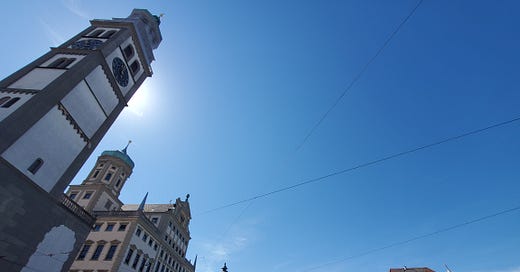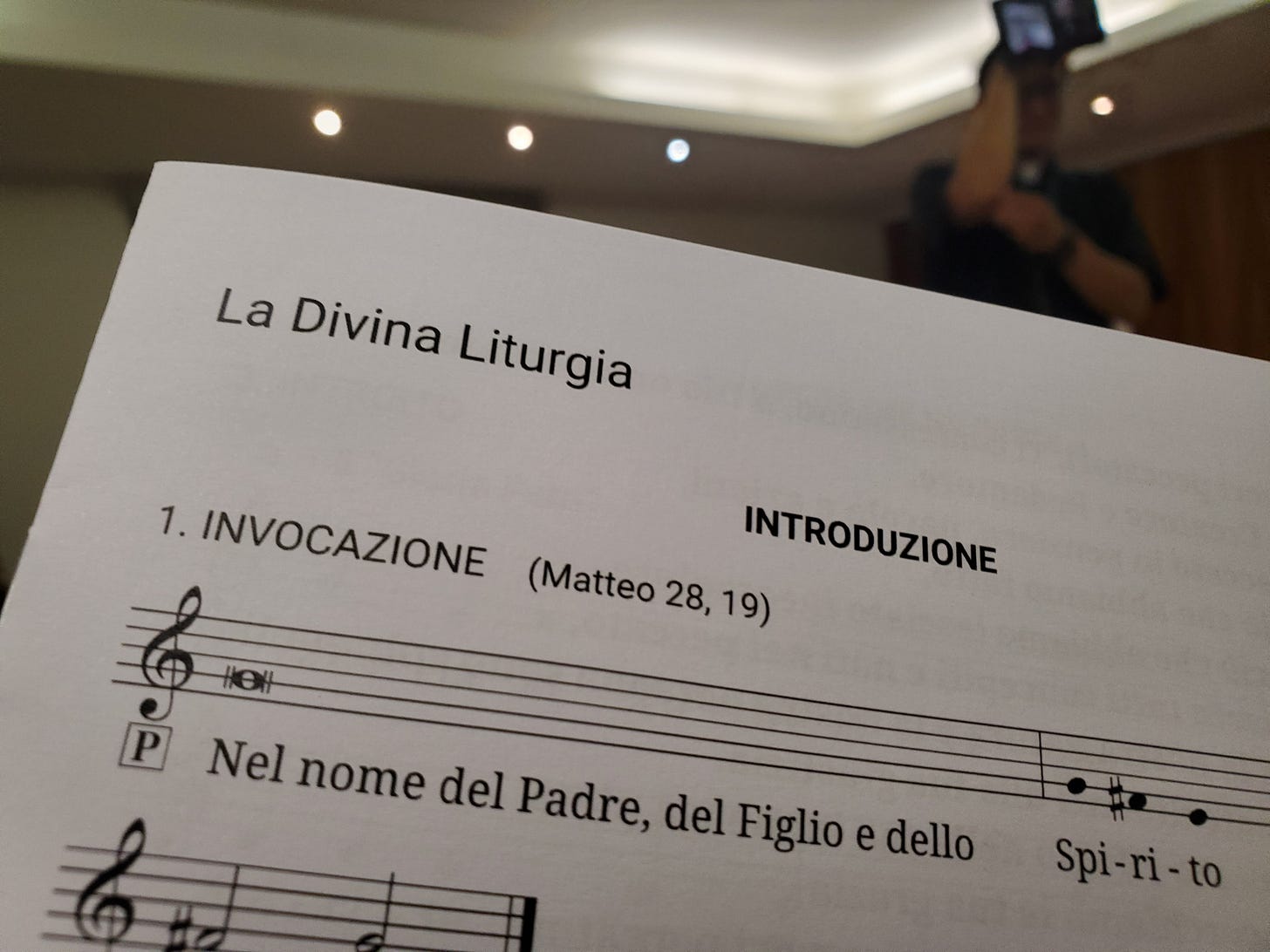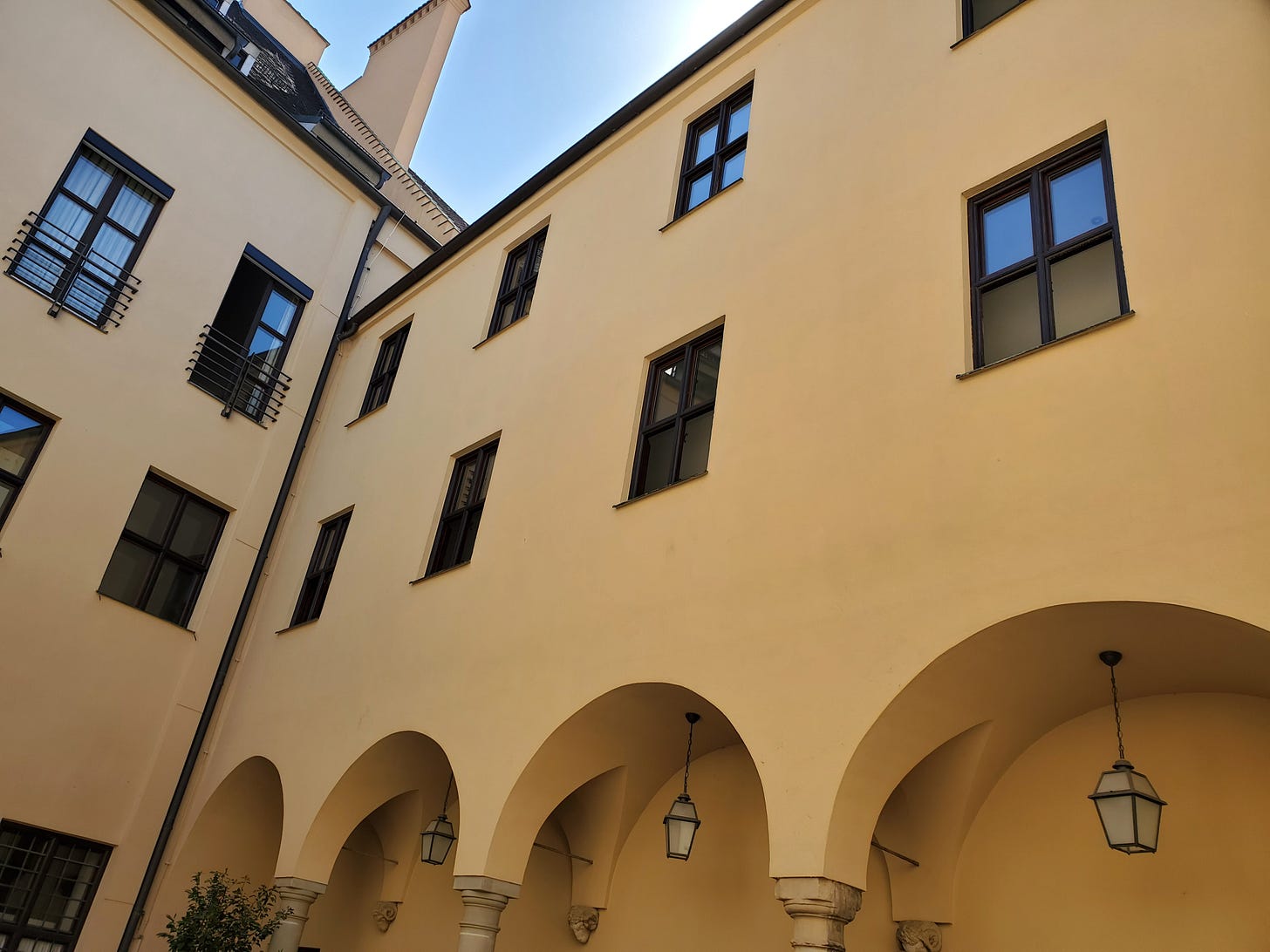It was great to worship with the Italian Lutherans on Sunday. Pr. McMiller preached on Mary and Martha. May the Lord bless the preaching of His Word and the establishing if this new church.
We followed the old pilgrim route north over Brenner Pass and into Innsbruck.
The Passion Play in Oberammergau was well done. The music and staging were very well done. I wish they would stick closer to the text of the Gospels.
I might write more about the Passion Play sometime, but here are a few points of introduction that I gave to our travelers, and a few reflections of my own.
Always use discernment. It doesn't matter if you're listening to a sermon but, watching a theological movie, looking at art, reading Wednesday what-not, or whatever, always use discernment. We always ask, does this match up with the Scriptures?
There are two things that were very wrong, and should be corrected:
The first is that there is no resurrection appearance of Jesus. Mary Magdalene meets the angel, who says that Jesus is living, and encourages her to spread the good news. The obvious absence of the resurrected body of Jesus is bad.
Second, there's a comment from the apostle John as Jesus is carrying the cross that eludes to Isaiah 53. But it completly reverses the meaning. John asks if Jesus was afflicted by God, and says “No." This is wrong. Isaiah 53 states emphatically that the affliction Jesus suffers for our sins is from the hand of God.
Surely he has borne our griefs and carried our sorrows; yet we esteemed him stricken, smitten by God, and afflicted. (Isaiah 53:4)
Yet it was the will of the Lord to crush him; he has put him to grief. (Isaiah 53:10)
Plays like this are always a matter of interpretation. There are a few interpretive moves that I didn't go along with. Jesus was angry and aggressive. Pilate was thoughtless and bloodthirsty.
Most of the miracles are missing, which is unfortunate. The raising of Lazarus is alluded to, and maybe Jesus heals the ear of Malcus in the garden, but that's not clear. (Andrew thinks that that miracle did happen, and was clear.)
There is a lot of fighting in the Sanhedrin, including Nicodemus, Joseph of Arimathea, and Simon of Bethany all standing up for Jesus and arguing vehemently for his release. It was interesting to notice the different angles from which they all came. It was an obvious “Bethany party" including Mary and Martha, along with Lazarus and Simon, who seem to be more clued into what Jesus was up to that the disciples.
The matter of Judas was again central to the plotline. Judas, disappointed that Jesus was not more zealously pursuing an earthly kingdom, arranges a private audience with Caiaphas. At least, that's what he thinks. When he sees that it was in fact a trial with the intent to execute Jesus, he falls into despair.
The despair of Judas was nicely contrasted with the hopeful sorrow of Peter. Peter, in his distress, is comforted by John, who assures Peter of Jesus’ mercy. This is not in the scripture, but I thought it was a helpful amplification of the role of preaching and Christian comfort for the conscience. On the other hand, Peter's soliloquy of repentance does put too much emphasis on our will, and misses the restoration accomplished by Jesus after the resurrection.
Like all religious art, the passion play offers blessings, but also comes along with certain temptations. The holy Spirit intends to captivate our imagination with words. There is no infallibly inspired images or art. One of the dangers is that our imagination is captured by the pictures, then we miss the more important theological points.
And, regarding all “pilgrimage" destinations, we remember that the word of God is the holy thing that makes everything else holy wherever his word is preached and heard, there is his holy place. Hearing his word, all our days are sanctified.
Augsburg
1518, Luther's interview with Cardinal Cajatan, which was supposed to happen in Rome, but which Frederick the Wise arranged to happen in Augsburg. Occurred in these rooms in the Fugger palace.
On June 25, 1530, The Lutheran Prince's presented the Augsburg confession. There's a plaque commemorating the place where it happened.
Then there's wild and beautiful Munich, and the trip home.









